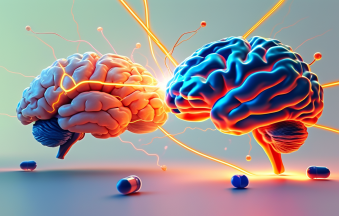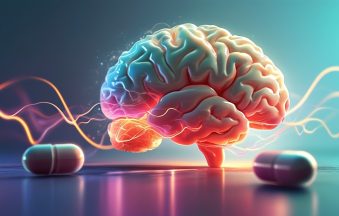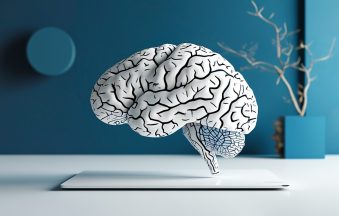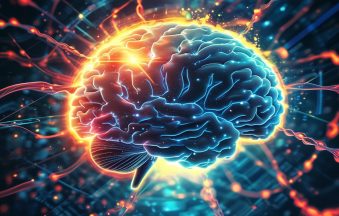Taurine Deficiency: Causes, Symptoms, and How to Fix It
Taurine is an important amino acid-like molecule that is vital for several body functions. Unlike most amino acids, taurine does not get incorporated into proteins, but it is crucial for maintaining a healthy heart, effective brain, developed muscles, and good eyesight. It is available in meat, fish, and dairy products, but some people having a vegetarian diet, medical issue, or certain genetics may not consume enough of it.
Reasons for Taurine Deficiency
There are a number of reasons due to which taurine deficiency may occur including:
Poor Diet
Taurine is mainly contained in animal products, meaning vegetarians and vegans on a plant-based diet are at a greater risk. Since plant foods are taurine free, lacking taurine-rich animal food increases chances of deficiency.
Certain Medical Conditions
Patients with liver and kidney disease have a hard time properly synthesizing taurine. Moreover, diabetic and heart patients along with those having metabolic disorders may also have less amount of taurine in their body.
Aging
Absence of sufficient amounts of taurine can occur due to aging as it lessens one’s ability to produce and retain taurine.
High Levels of Stress
Long periods of stress can result in low taurine levels which may affect the central nervous system and general wellbeing.
More Physical Endeavors
Those following a particular athletic routine or engaging in vigorous exercises may need greater amounts of taurine due to its importance in muscle activity and energy metabolism.
Signs and Symptoms of Taurine Deficiency
Taurine deficiency is exhibited in various symptoms. Examples of common symptoms include:
Loss of Energy and Exhaustion
Given that taurine contributes to energy production at a cellular level, its low levels can result in persistent tiredness and perpetual fatigue.
Issues with the Heart
Taurine is imperative in taking care of the heart. The deficiency has shown a correlation with hypertension, increased risk of heart disease, or even irregular heartbeats.
Weakened Muscles and Muscle Cramps
Weakness in muscles and low levels of physical performance may occur as a result of low taurine levels because taurine affects contraction strength.
Diminished Ability to Think
Taurine deficiency may contribute to difficulties concentrating, brain fog, and even lack of will or desire resulting from depression and anxiety. This is because taurine protects neurons as well as enhances the activity of neurotransmitters, thus supporting brain functions.
Eye Health Problems
Taurine is important for the health of eyes, especially when it comes to the retina. Deficiency of taurine can result in vision problems, including retinal degeneration.
Compromised Immune System
Taurine helps in immune function because it acts as both an antioxidant and an anti-inflammatory. Inflammation lowers immune system functionality, and if taurine levels are low, infection susceptibility builds.
How to Diagnose Taurine Deficiency
Blood and urine examinations can show taurine concentrations, but these are not routine. If you think there is a deficiency based on symptoms and eating habits, see a doctor who can recommend the right tests.
How to Prevent and Treat Taurine Deficiency
Prevention and treatment of taurine deficiency involve changes in diet, nutritional supplementation, and lifestyle modifications.
Taurine Supplements
Those who have problems getting enough taurine from foods can purchase taurine in capsule and powder form as well as drinks. The average dose varies from 500 mg to as high as 3,000 mg on a daily basis, depending on the person’s requirements and health conditions.
Taurine Support Through Direct Body Production
Taurine can be produced from other amino acids like cysteine and methionine through the intervention of vitamin B6. It is critical to make sure these nutrients are consumed to maintain adequate levels of taurine.
Control Stress
The depletion of taurine associated with stress can be controlled through meditation, breathing exercises, and various other types of workouts aimed at relaxing the body and mind.
Deal With Other Medical Issues
If you have health problems that can influence metabolism of taurine, it is essential to have a proactive approach towards managing your health with your physician so taurine levels can be sufficiently optimized.
Who Stands to Gain From Additional Taurine Intake?
A few select groups of people are likely to gain from an increase in taurine consumption, such as:
- Vegetarians and vegans – As the primary sources of this nutrient are unavailable, supplementation comes into play.
- Athletes – Supports endurance while reducing muscle soreness and improving recovery.
- Elderly – Dietary taurine becomes more vital with aging due to the drop in body production levels.
- People with heart issues – Helps in regulating blood pressure and improves heart functioning.
- People suffering from diabetes – Several studies point to taurine possibly helping with blood sugar control along with mitigating damages of diabetes.
Potential Side Effects of Taurine Supplements
Although taurine supplements are generally safe, their overuse may lead to some side effects, including:
- Nausea or diarrhea – Disturbances in digestive processes.
- Low blood pressure – Precaution is needed among users of blood pressure medicines.
- Medication interactions – Consult your doctor before using supplements, particularly if you use medications for heart disease, diabetes, or high blood pressure.
Final Thoughts
Taurine is a vital nutrient needed in the body, as it helps in maintaining heart health and the brain and muscles functioning together. While a well-balanced diet usually does not bring about a taurine deficiency, certain groups such as vegetarians, vegans, athletes, and older people might need extra taurine from diet or supplements. If you suspect you are deficient in taurine or are experiencing symptoms related to it, you should talk to a healthcare professional. Having proper levels of taurine may positively affect energy levels, cognition, and overall health.
Questions and Answers
Does lack of taurine lead to anxiety?
Yes, due to the role taurine plays in regulating certain neurotransmitters, anxiety and mood disorders may stem from a deficiency.
Can taurine be used for an extended period of time?
Yes, taurine is safe for prolonged use in general as long as its source is from food. It should be consumed in moderation as a supplement.
Do energy drinks have an adequate amount of taurine?
Some energy drinks have taurine, however, they also contain a lot of sugar and caffeine, which can be unhealthy. Whole foods and supplements are likely better options for taurine.
How long to repair a taurine deficiency?
Recovery time varies based on how severe the deficiency is and how soon the diet or supplement is changed. Many people report feeling more energetic and better in a matter of weeks.
Are taurine supplements safe for children?
Typically, children do not require supplements as their diet already provides enough taurine. Although if there is a concern regarding a child’s health, a doctor should be contacted before giving them supplements.
This piece of advice will have some serious benefits if you keep these suggestions in mind for taurine deficiency. Proactive steps toward maintaining good health will prevent future complications.














Add comment